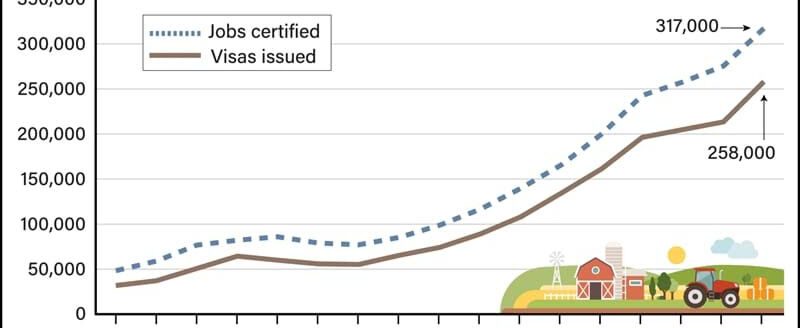Employers and employees in many industries made the shift to a remote working model out of necessity at the beginning of the COVID-19 pandemic. Thanks to technology and collaborative tools, many organizations continue to offer fully remote or hybrid work options to employees.
A 2021 Gartner report forecast that in 2022, 51% of all knowledge workers and 31% of all workers globally would be working remotely at least one day per week.
A recent First Friday e-Call hosted by Kansas State University Research and Extension—“How Can Remote Online Training Help Kansans Work Where They Live?”—provided an overview of a new training program aimed at preparing rural Kansans for remote work.
Ron Wilson, director of the Huck Boyd National Institute for Rural Development at Kansas State University, and Jaime Menon, Extension state leader for Community Vitality at K-State, discussed the Remote Online Initiative (also known as the Rural Online Initiative, or ROI) during the July Extension webinar.
Utah State University Extension launched the ROI training and certification program in 2019 to help rural Utah residents become effective remote workers. K-State Extension has partnered with USU as an ROI affiliate to offer the program in Kansas.
Wilson believes there are significant benefits and opportunities in remote work for both employers and employees.
“When I first saw the term ROI in this context, it made me think of return on investment because that’s what we hear in business circles. And it struck me that it’s very fitting that we share that acronym because we believe there’s opportunity for significant return on investment if we can use the Remote Online Initiative to create new opportunities for our citizens, our businesses and our communities,” he said.
Employees who work remotely enjoy more flexibility, having no commute time, and saving money on gas, wardrobe, and other work-related expenses. Wilson said they have seen significant benefits to employers with cost savings plus an expanded talent pool for open positions.
The Utah ROI is a useful tool for instructing people in skills that are necessary to navigate remote work—including K-State Research and Extension leaders who had to make the transition to remote work beginning in 2020.
“The Utah State courses helped us at the Extension level develop our work plans and policies, so that helped us outline what the expectations were and helped in the areas of some of the important skills that are needed to be a remote worker, such as productivity, time management, and online security. It really helped us to navigate the online work environment,” Menon said.
Extension has a mission to serve rural citizens, and Wilson works in rural development. Broadband is an important piece, he said, noting that Kansas Farm Bureau has done mapping to determine the state’s broadband needs. Kansas Department of Commerce has a broadband office that has undertaken extensive work too.
Wilson said the tools required to participate in the program include reliable broadband, a web camera and microphone, and basic computer proficiency.
Regarding broadband, Wilson said, “We know this is a huge public policy issue. We know that our policymakers are making progress or seeking to take steps to invest in broadband, and this is just another reason why good broadband access is important … so our people can participate in education and training on this topic and work effectively in that context.”
The Kansas ROI program offers a professional course to equip workers with skills and tools necessary for moving from on-site work to virtual work. The program’s leader course is aimed at helping organizational leaders develop remote work environments in their organizations while maintaining accountability and productivity.
The courses consist of self-paced work modules and live interactive workshops hosted by Utah State by Zoom. Participants are taught to use project management and communication tools like Slack, Menon said. “They also provide an opportunity for participants to discuss the content from the modules in an environment that resembles a real remote team.”
Program coordinators in Kansas function as teaching assistants for the virtual classes, working with course cohorts to help them navigate the program. “You are not alone,” Wilson said.
Course students learn soft and hard skills that are vital to working autonomously and in long-distance teams, Menon said, including time management, flexibility, attention to detail, and critical thinking.
If participants complete all of the modules and assignments, attend all four interactive workshops, and pass assessments with a minimum score of 80%, then they are approved for certification in Remote Work Professionalism or Remote Work Leadership from both Utah State and K-State.
“What’s next? Making connections is what’s next,” Wilson stressed. “We want to make certain that this is a win-win for employers, employees, and entrepreneurs seeking potential clients.”
K-State Extension professionals went through a pilot program to test the remote certification course. Now organizers are ready to launch the program in Kansas more broadly. They plan to conduct surveys to assess the state of remote work in Kansas from both business and community perspectives.
They also want to keep mental health and wellness in mind, as remote work can sometimes be isolating. Nutrition, exercise and other wellness recommendations will be shared with participants after completion of the program, Menon said.
Frances Graves, Wildcat District director and Extension Community Vitality agent, took the remote leader course during the pilot program. “It’s been really helpful as a toolkit for a modern workforce.”
She noted their Extension district in southeast Kansas has experienced significant turnover and hiring changes recently. Offering a hybrid policy for both in-office and remote work is attractive to prospective employees, Graves said. “Even though this is a great piece to market to companies that are hiring remote workers or to professionals who want to work remotely, it’s also a really wonderful piece to help us navigate this transition into the modern workforce where we have these employees who want work-life balance.”
She continued, “We want to stay competitive, and it gives us the tools and means of measuring success, like how can we actually make this work? How can we measure productivity?”
To learn more about the ROI certification program and dates and costs of future courses, visit remoteworkcertificate.com or kansasremotework.com.
Shauna Rumbaugh can be reached at 620-227-1805 or [email protected].



